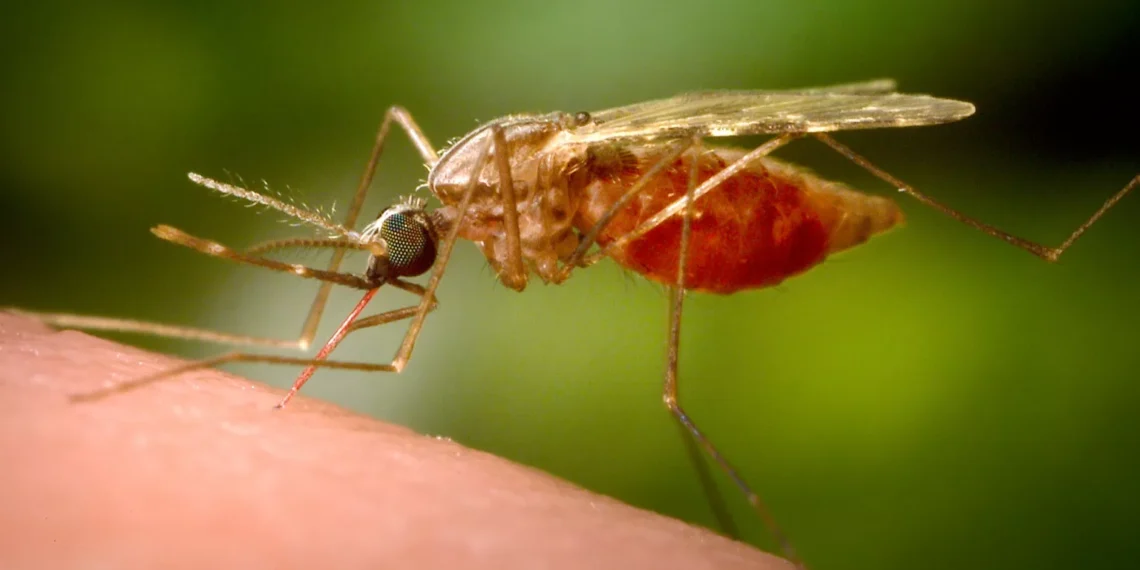A mosquito-borne virus that has infected more than 7,000 people across at least 13 cities in China has sparked precautions similar to those imposed during the COVID pandemic in attempts to stop its spread, despite the virus not being transmissible from person to person.
The chikungunya virus, which spreads only through the bite of an infected mosquito and is not usually fatal, has spread quickly across more than a dozen cities in the southern Guangdong province, just north of Hong Kong, with almost 3,000 cases reported in the last week alone, according to the BBC.
Chikungunya is usually a rarity in China, but infections have spread rapidly after an imported case was detected in Foshan city, which has been the hardest hit, on July 8, and spread from there, the New York Times reported.
In Guangdong, measures reminiscent of those used during the COVID pandemic have been instituted, including requiring all infected patients to remain in hospital quarantine under a mosquito net until they test negative for the virus, according to a translation of Chinese news outlet NF News.
Authorities are conducting door-to-door home inspections to ensure the elimination of stagnant water, where mosquitoes breed, and those who fail to cooperate can be fined or face criminal charges for “obstructing the prevention of infectious diseases,” according to a government flyer translated by the Times.
Other precautions taken include introducing giant “elephant mosquitoes” in the region in hopes their larvae will eat the virus-carrying mosquitoes, releasing mosquito-eating fish into local ponds, spraying pesticides, and sending out drones with the mission of identifying mosquito breeding sites, the Times reported.
At least five households had their electricity cut off because they did not cooperate with door-to-door inspections, the New York Times reported, citing a neighbourhood committee notice issued in the district of Guicheng.
Read also:
- Goodluck Jonathan makes history as first African appointed UN Global Crisis Envoy by US, UK, China, Russia, France, UN
- China Cultural Centre to host 7th NUJ FCT Nigeria–China friendship Table Tennis Tournament in Abuja
- Nigeria defeats China in FIBA U-19 Women’s Basketball World Cup
What is Chikungunya virus?
Chikungunya is a mosquito-borne virus that presents most commonly with a headache, muscle pain, nausea, fatigue, rash, and swollen joints.
While most symptoms usually resolve within two weeks, the “debilitating” joint pain can persist for months or years, according to the World Health Organization.
The joint pain is the calling card of chikungunya, and without it, people with the virus can easily be misdiagnosed as having dengue or Zika, making it hard to know exactly how many people are infected.
Chikungunya was first detected in southern Tanzania in the 1950s. The name comes from a word in the Kimakonde language of southern Tanzania that means “that which bends up,” meant to describe the contorted posture of people with severe joint pain.
How Does Chikungunya Virus Spread?
Chikungunya can only be transmitted to a person through the bite of an infected mosquito, but people can transmit it right back to the insect.
So, if a non-infected mosquito bites a person with chikungunya, it can contract the virus and infect the next healthy person it bites. It is not contagious or transmissible from person to person.
Is there a Chikungunya vaccine?
Yes. There are two approved for use in the United States: IXCHIQ, a live-attenuated vaccine, is approved for people 18 and older, and VIMKUNYA, a virus-like particle vaccine, is approved for those 12 and older.
The CDC only recommends the vaccine to people traveling to an area with a Chikungunya outbreak.






